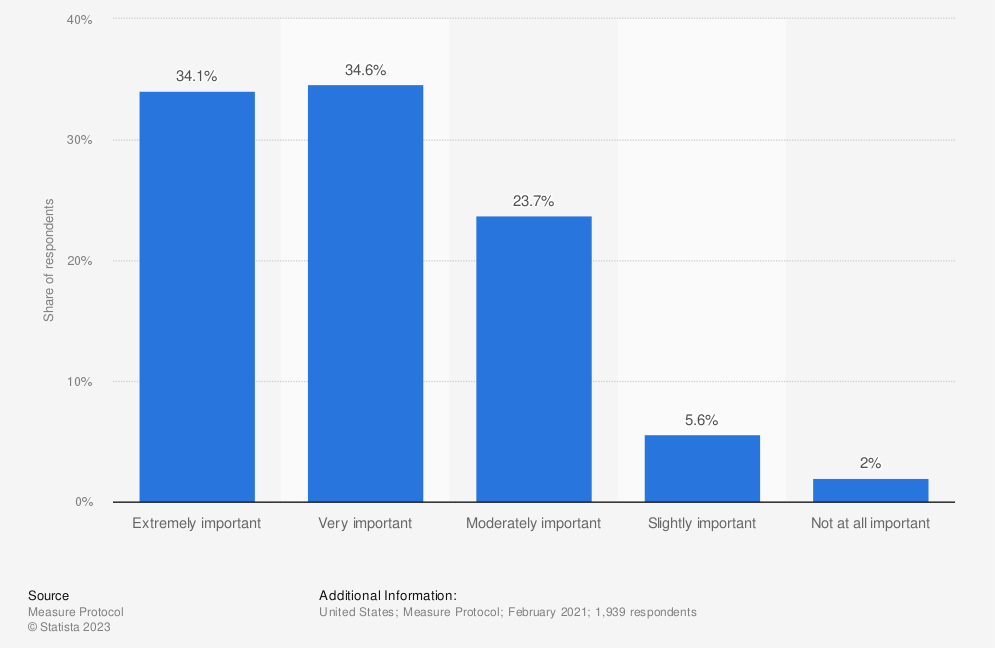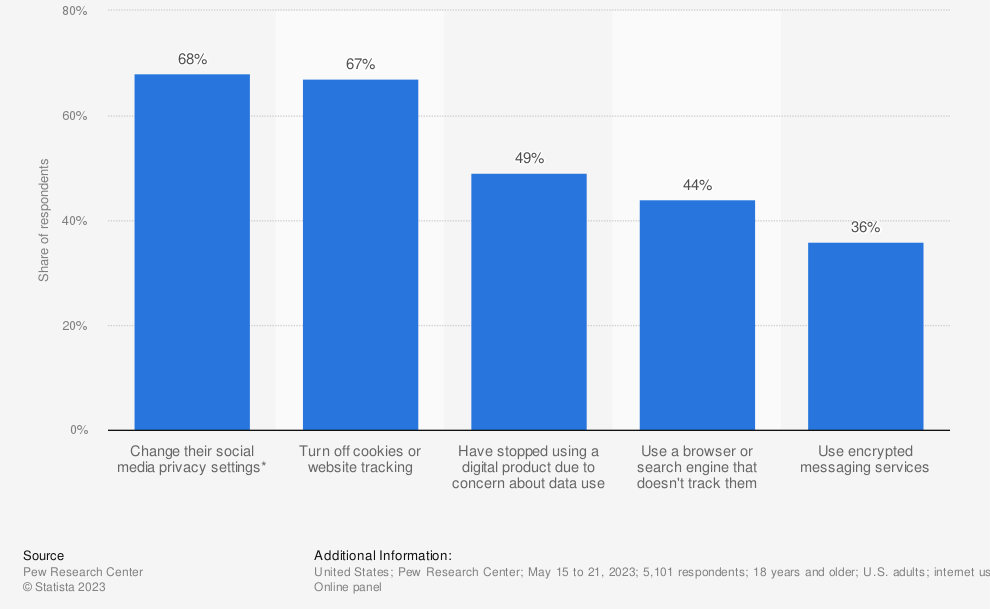How much does privacy really matter to people?
A frequent question we get from developers building with XMTP revolves around user attitudes towards privacy. We believe you might find the statistics on this topic quite surprising.

Today, messaging has become the most prevalent form of digital communication, as reflected by a staggering 74.7% of smartphone users worldwide engaging in chatting or sending messages as one of their primary activities:

However, this convenience comes with growing concerns about privacy and data security. Not only are messaging services highly integrated into our daily routines, but they also hold vast quantities of our personal conversations, relationships, and data.
Rising Privacy Concerns Among Consumers
Alarmingly, a recent survey shows that 57% of consumers surveyed in the United States alone are concerned about the government tracking their data, while 46% are worried about companies doing the same. These fears are not unfounded.

A parallel study reveals that 42% of U.S. adults are wary of companies selling their information without their consent, and 38% are apprehensive about identity theft and the misuse of their personal information.
The Necessity for Decentralized Secure Messaging Protocols
Given the high engagement in messaging services and the significant worries surrounding privacy, there is an undeniable demand for secure communication channels. This is an opportunity for not just app-specific solutions, but also expanding on the desire to have a robust open protocol that ensures end-to-end encryption and data portability across all messaging platforms.
As of November 2021, the data shows that users in select global markets who are aware of their privacy rights are significantly more likely to use tools that increase their privacy:

The decision to opt for privacy-preserving alternatives is not just a personal preference but a powerful movement towards data sovereignty. When the underlying protocols for messaging in privacy-friendly applications are interoperable, they amplify the impact of these choices. Interoperability ensures that users aren't locked into a single platform or ecosystem, granting them the freedom to communicate across different services without compromising on privacy or data ownership.
The impact of a privacy-focused protocol is magnified exponentially when it is decentralized, and when no single entity has ownership or control over users' data, a critical step in redefining how messaging works in a privacy-first world. This not only empowers users with true ownership of their data but also fosters an environment where trust is built into the communication network, and privacy becomes the new default of how we operate and communicate on the web.
This is the reality we’re building alongside the vibrant XMTP developer community.
Users Want More Control Over Their Data
Below is some data highlighting the clear indication of consumers’ attitudes toward the importance of having control over their personal data and how it is shared. A combined 68.7% of respondents view control over their data as either "extremely important" or "very important". This suggests that there is a high level of concern about data privacy and a strong desire for individuals to have more say in how their personal information is collected and utilized.

The data from the below graph reflects a growing trend towards privacy-conscious behavior among U.S. internet users. A significant number of adults are taking active steps to protect their privacy. 36% have switched to messaging services that offer encryption, showing a significant concern for the privacy of their communication. Almost half of the respondents, 49%, have ceased using a digital product because they were worried about how their data would be used:

The Journey Ahead
To address ongoing privacy concerns, developer communities must collaborate to support, improve, and adopt open standards for messaging that put privacy at its core. By ensuring that these standards are transparent, auditable, and credibly neutral, trust can be gradually restored in how we all communicate online.
Furthermore, policymakers and regulatory bodies should work in tandem to enforce privacy protections. This is why XMTP Labs joined the Global Encryption Coalition and where we hope to have an impact in confronting the rising legal threats to privacy and encryption worldwide.
Everyone Has a Right to Privacy
The collective data paints a clear picture: people value their privacy and are concerned about their personal information being mishandled. As messaging continues to dominate our online interactions, the need for secure, open, and decentralized messaging protocols has never been more critical. Just like everyone has a right to privacy, everyone also has a role in bringing a privacy-first web to life. So how can you get involved?
Ways to Engage
If you feel strongly towards this vision and are a developer, check out the XMTP documentation for everything you need to get started and come chat with the XMTP Labs team and wider community in the XMTP Community Forum or Discord. We also welcome you to join the mission by exploring open roles on our careers page. We love building alongside a vibrant and growing community, and we’re always eager to connect with anyone who wants to discover more and contribute!
XMTP Newsletter
Join the newsletter to receive the latest updates in your inbox.
